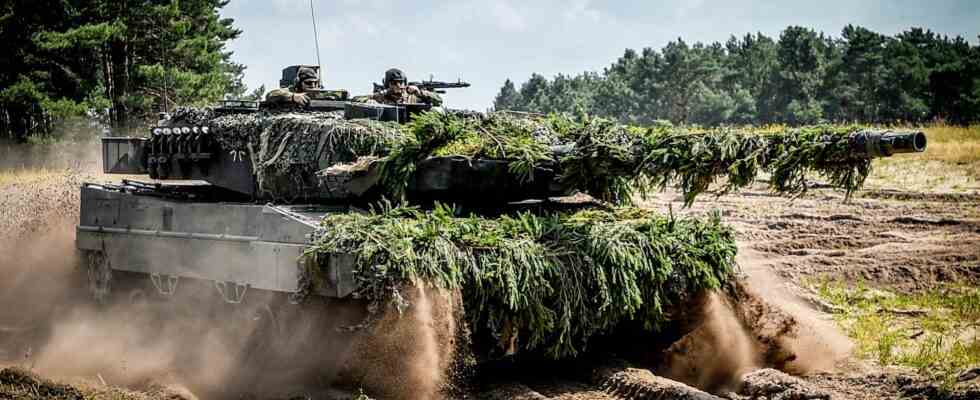Status: 03/08/2023 10:57 a.m
Germany wants to make up for its gaps in the “Leopard 2” stocks – and would like to buy several decommissioned battle tanks from Switzerland. But Federal President Berset protests against this.
The Swiss Federal President Alain Berset has shown skepticism in view of a request from Germany to buy back “Leopard 2” tanks. There are rules against the sale of weapons for which no legal exceptions are possible, he said on the fringes of a UN meeting in New York.
Although changes to the framework are currently being discussed by Parliament, which is absolutely logical. But it is “not the time for changes”. “We want to remain fairly conservative and moderate on these issues,” Berset said in a statement to journalists.
Germany ruled out transfer to Ukraine
Germany had announced that it would sell Leopard 2 tanks to the Ukraine and wants to close material gaps in the Bundeswehr by buying back battle tanks from Switzerland. A corresponding request was made to the Swiss government. It is not known how many tanks Germany intends to buy.
Since Switzerland is not allowed to deliver weapons to countries at war due to its principle of neutrality, a spokesman for the German Ministry of Defense assured that it could be contractually ruled out that the tanks from Switzerland would later be given to Ukraine.
Switzerland has 230 “Leopard 2” tanks, of which 134 are in service and 96 are decommissioned. The Ministry of Defense in Bern said the latter were not “decommissioned”. According to Swiss law, only decommissioned material can be sold. Parliament decides whether material is to be decommissioned.
debate about neutrality
Against this background, Berset fundamentally reaffirmed his country’s neutrality, which is enshrined in the constitution. “In view of our legal framework in Switzerland, arms exports are not possible,” said the Federal President. “We must and want to maintain this legal framework for the government and the Federal Council.”
While the Alpine country – which is not a member of the EU – supports the sanctions imposed on Russia by the European Union, it has so far been adamant about its military neutrality. However, various initiatives to relax the regulations are being discussed in Parliament, but a decision is not expected for a few months.

